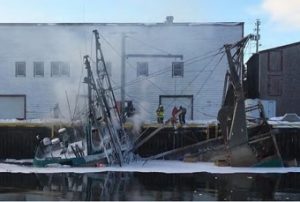Tag Archives: imported shrimp
Walmart, Aldi linked to contaminated shrimp from India
 NBC News, in partnership with The Outlaw Ocean Project, has released a knee-buckling report on a shrimp factory in southern India that distributes products to stores like Walmart and Aldi here in the U.S. At the center of the story is the former manager of Choice Canning Joshua Farinella, who worked at the factory for four months and left after discovering the company had allegedly engaged in several abhorrent practices, including the use of “peeling sheds” that were offsite and unsanitary, using antibiotics with shrimp in violation of U.S. food safety law, and mistreating workers. The revelation from Farinella has the attention of Congress. In mid-March ranking Democrats in the House Committee on Natural Resources wrote a letter calling for documents related to Farinella’s claims. more, >>click to read<< 15:11
NBC News, in partnership with The Outlaw Ocean Project, has released a knee-buckling report on a shrimp factory in southern India that distributes products to stores like Walmart and Aldi here in the U.S. At the center of the story is the former manager of Choice Canning Joshua Farinella, who worked at the factory for four months and left after discovering the company had allegedly engaged in several abhorrent practices, including the use of “peeling sheds” that were offsite and unsanitary, using antibiotics with shrimp in violation of U.S. food safety law, and mistreating workers. The revelation from Farinella has the attention of Congress. In mid-March ranking Democrats in the House Committee on Natural Resources wrote a letter calling for documents related to Farinella’s claims. more, >>click to read<< 15:11
Shrimpers face pricing issues
 “I’ve been in the business with my parents when they were alive, straight out of high school, which is about thirty something years ago. I have never seen the price of shrimp this low,” said Jose Cuevas Jr., owner of Los Tortugos Seafood Market. Cuevas has a fleet consisting of eleven shrimp boat. He says all of his boats are now sitting idle because it’s not cost effective to go fish. He said it costs 30 to 40 thousand dollars just to fuel up one boat to go out. Other shrimpers are having the same issues with fuel costs keeping them docked. “Usually for us, around this time of year, fuel prices are a dollar fifty. Right now, they’re at close to three dollars, so double,” said Alberto Ochoa, owner of Ochoa Trawlers. Video, more, >>click to read<< 15:02
“I’ve been in the business with my parents when they were alive, straight out of high school, which is about thirty something years ago. I have never seen the price of shrimp this low,” said Jose Cuevas Jr., owner of Los Tortugos Seafood Market. Cuevas has a fleet consisting of eleven shrimp boat. He says all of his boats are now sitting idle because it’s not cost effective to go fish. He said it costs 30 to 40 thousand dollars just to fuel up one boat to go out. Other shrimpers are having the same issues with fuel costs keeping them docked. “Usually for us, around this time of year, fuel prices are a dollar fifty. Right now, they’re at close to three dollars, so double,” said Alberto Ochoa, owner of Ochoa Trawlers. Video, more, >>click to read<< 15:02
Locals want more rules for seafood imports
 Only about 10% of seafood consumed in America is domestic. That’s crippling the Louisiana seafood industry. “For the last two years it’s just about ruined the industry,” Louisiana fisherman Pete Gerica said. In his 50 years on the water, Gerica has never seen it this bad. “There’s just so much you can take,” Gerica said. “Fuel prices being $4.00 a gallon. The cost of everything you buy, it’s just you can’t stay in business if you keep on spending money and you ain’t making none.” Monday, Congressman Garret Graves and Lt. Governor Billy Nungesser testified before the Louisiana Seafood Task Force in Baton Rouge. more, video, >>click to read<< 12:40
Only about 10% of seafood consumed in America is domestic. That’s crippling the Louisiana seafood industry. “For the last two years it’s just about ruined the industry,” Louisiana fisherman Pete Gerica said. In his 50 years on the water, Gerica has never seen it this bad. “There’s just so much you can take,” Gerica said. “Fuel prices being $4.00 a gallon. The cost of everything you buy, it’s just you can’t stay in business if you keep on spending money and you ain’t making none.” Monday, Congressman Garret Graves and Lt. Governor Billy Nungesser testified before the Louisiana Seafood Task Force in Baton Rouge. more, video, >>click to read<< 12:40
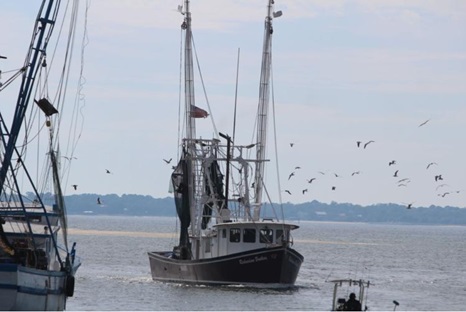
The Fleet fights back: Fishermen unite to curb shrimp dumping
Mount Pleasant’s Economic Development Committee met on Nov. 6 and voted in favor of the proposed economic disaster declaration from the South Carolina Shrimper’s Association and Southern Shrimp Alliance that asserts the Mount Pleasant shrimping fleet can’t sustain itself due to the harmful impacts of shrimp dumping, or the flooding of the market with imported, non-domestic shrimp. Mount Pleasant is the second municipality in South Carolina to declare a state of economic disaster for the domestic shrimping industry. Bryan Jones, vice president of the South Carolina Shrimper’s Association, said the declaration is more than symbolic — it’s one crucial part of a fight that is bringing fishermen from across the Southern United States together to defend their businesses, livelihoods and the shrimping industry as a whole. >>click to read<< 12:40
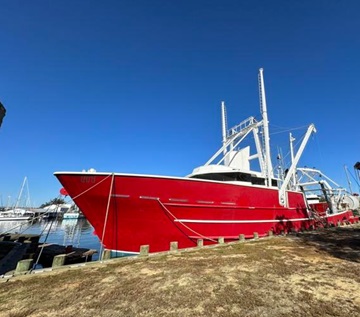
County lawmakers request fishery resource disaster determination amidst nationwide shrimp disaster
On Sept. 18 the Pamlico County Commissioners adopted a resolution urging North Carolina Governor Roy Cooper to consider submitting a request for a fishery resource disaster determination to the NC Secretary of Commerce. Craven County followed suit and adopted a similar resolution on October 2. According to these resolutions, the global supply of farm-raised shrimp imports into the United States has reached record highs. This imported shrimp now dominates cold storages, distribution hubs, and the American market at a level that is devastating to US operators. This influx of imported shrimp into the American market has caused significant revenue loss, and loss of access to the shrimp fisheries themselves, for small family-owned supporting businesses, and other supporting businesses. >>click to read<< 09:47
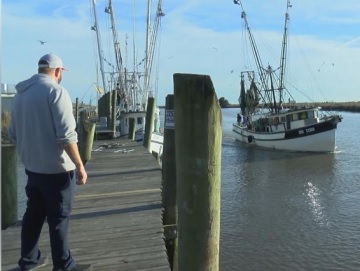
McIntosh County commissioners pass resolution to support local shrimpers
The McIntosh County Board of Commissioners passed a resolution to seek protection for the shrimping industry at a special called meeting on Thursday. The resolution states that an increase of imported shrimp in the United States have “continued to decimate the local shrimping industry’s ability to market and sell wild caught domestic shrimp.” The resolution passed unanimously during Thursday’s meeting. Local leaders hope the more cities and counties that jump on board with similar resolutions, the closer they’ll get to grabbing the attention of Congress and the federal government. >>click to read<< 16:48
Lowcountry shrimpers say area restaurants buying shrimp from other countries is putting a strain on the industry
 Lowcountry shrimpers are concerned that they are going to be priced out by imported shrimp. But there’s one local organization working to promote eating locally. The South Carolina Shrimper’s Association has multiple goals such as advocating for policies that support the shrimping industry, educating the public about the industry, and promoting sustainable shrimping. One of the biggest problems Lowcountry shrimpers are facing right now is local restaurants importing the shrimp. They say some restaurants import shrimp from other countries at extremely low prices that local shrimpers just can’t afford to beat – and it’s impacting their livelihood. Video, “It’s been happening for a long time now, but it’s gotten to where it’s getting out of hand,” said local shrimper Rocky Magwood. >>click to read<< 13:03
Lowcountry shrimpers are concerned that they are going to be priced out by imported shrimp. But there’s one local organization working to promote eating locally. The South Carolina Shrimper’s Association has multiple goals such as advocating for policies that support the shrimping industry, educating the public about the industry, and promoting sustainable shrimping. One of the biggest problems Lowcountry shrimpers are facing right now is local restaurants importing the shrimp. They say some restaurants import shrimp from other countries at extremely low prices that local shrimpers just can’t afford to beat – and it’s impacting their livelihood. Video, “It’s been happening for a long time now, but it’s gotten to where it’s getting out of hand,” said local shrimper Rocky Magwood. >>click to read<< 13:03
Louisiana elected officials seek to protect local fishermen from imported shrimp
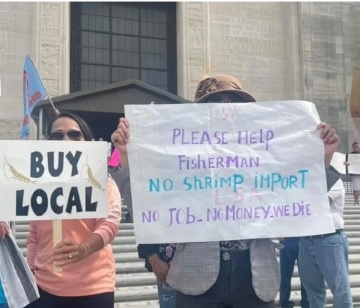 Louisiana elected officials are rallying to find solutions to help protect the state’s shrimp fishermen from cheap foreign shrimp that critics say is depriving shrimpers of their livelihood and undermining public health. Last month, the state Legislature’s Seafood Safety Task Force met to consider ways to stem the influx of shrimp from China and other nations amid concerns that the imported seafood may contain impurities that pose risks to the health of Louisianans. In addition, Gov. John Bel Edwards has requested that the U.S. secretary of commerce declare an emergency disaster declaration to provide assistance to shrimp fishermen. The Florida-based Southern Shrimp Alliance is also urging governors of Gulf and southeastern states to request federal relief funds for shrimpers. >>click to read<< 07:29
Louisiana elected officials are rallying to find solutions to help protect the state’s shrimp fishermen from cheap foreign shrimp that critics say is depriving shrimpers of their livelihood and undermining public health. Last month, the state Legislature’s Seafood Safety Task Force met to consider ways to stem the influx of shrimp from China and other nations amid concerns that the imported seafood may contain impurities that pose risks to the health of Louisianans. In addition, Gov. John Bel Edwards has requested that the U.S. secretary of commerce declare an emergency disaster declaration to provide assistance to shrimp fishermen. The Florida-based Southern Shrimp Alliance is also urging governors of Gulf and southeastern states to request federal relief funds for shrimpers. >>click to read<< 07:29
Imported shrimp eaten in U.S. may not be safe – U.S. Rep. Castor wants to do something about it
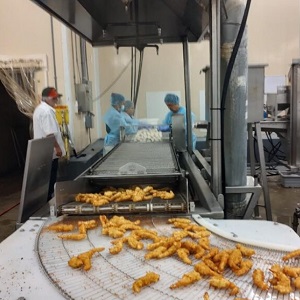 With inventories of shrimp sitting at docks throughout the Gulf Coast due to an abundance of imported seafood, the shrimp industry and U.S. Rep. Kathy Castor of Florida want to increase the purchase of domestic shrimp in the United States and provide more federal funding to regulate imported shrimp for consumers. John Williams is the executive director of the Southern Shrimp Alliance, which represents members of the shrimp industry from Texas through North Carolina. He said a lot of his members that are suffering right now. Castor’s bill, the Laws Ensuring Safe Shrimp Act (LESS Act) would address that issue by vastly increasing funding for the FDA to do inspections of foreign produced shrimp. >click to read< 16:07
With inventories of shrimp sitting at docks throughout the Gulf Coast due to an abundance of imported seafood, the shrimp industry and U.S. Rep. Kathy Castor of Florida want to increase the purchase of domestic shrimp in the United States and provide more federal funding to regulate imported shrimp for consumers. John Williams is the executive director of the Southern Shrimp Alliance, which represents members of the shrimp industry from Texas through North Carolina. He said a lot of his members that are suffering right now. Castor’s bill, the Laws Ensuring Safe Shrimp Act (LESS Act) would address that issue by vastly increasing funding for the FDA to do inspections of foreign produced shrimp. >click to read< 16:07
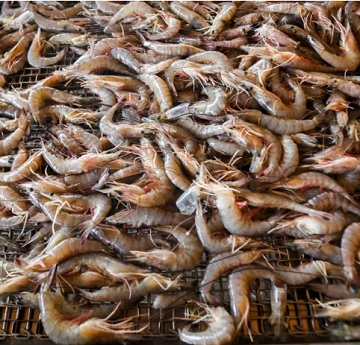
Letter: Pleas for help from Louisiana shrimpers fall on deaf ears
The Louisiana shrimp industry is in crisis; putting our 15,000 jobs and $1.3 billion industry at risk. During the legislative session, hundreds of shrimpers, dock owners and processors marched on the State Capitol to call out unwanted competition from imported shrimp. Louisiana plays a significant role in the U.S. shrimp market, accounting for 25% of the nation’s demand. But imports from Thailand, Vietnam, Indonesia and Ecuador are flooding U.S. markets, resulting in distressed prices for our product. >click to read< 08:06
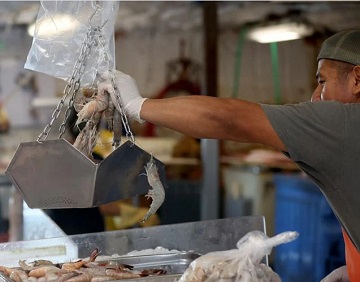
Lawmakers push for tighter rules on imported shrimp
A federal lawmaker representing Galveston County has co-sponsored a bill that would increase U.S. Food and Drug Administration testing to ensure imported shrimp meet domestic health and safety standards and fund a federal agency to buy some of the U.S. catch under some circumstances. The bill is meant to weed out tainted shrimp and level the field for U.S. shrimpers and seafood markets that must meet higher quality standards and have been battered by large foreign companies, including shrimp farming operations, able to sell their products in the United States for about half the domestic price. Customers leaving the seafood market agreed. Customer Fredell Rosen said domestic shrimp is the only way to go. “I want my shrimp from here,” Rosen said. “I want my shrimp local. I’m willing to pay more because I know it’s regulated and safe.” >click to read< 16:01

Imported shrimp threatening Louisiana’s seafood industry
In June, a fleet of fishermen stood at the capitol to plead lawmakers to save their industry from imports. “What we’re seeing is a flood of shrimp coming into the country in droves far beyond what we can consume as a country each year,” Chalin Delaune, the Vice President of Tommy’s Seafood, a processor of gulf caught seafood in Louisiana, said. It worked, and the state legislature approved a bill that would give tax breaks to commercial fisherman to help them compete with foreign prices. “The legislation is a start in the right direction,” Delaune said.” “It should’ve happened a long time ago and we believe there’s a lot of work to still be done.” Video, >click to read< 10:23
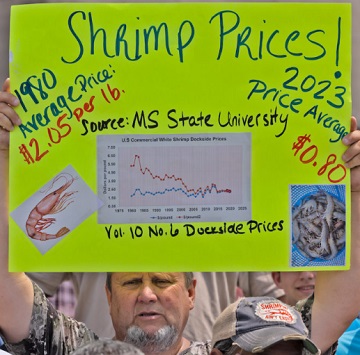
Louisiana shrimpers are worried imports will sink them for good
It’s the start of brown shrimp season in Louisiana, and instead of a fleet of boats heading out to trawl nearby waters, fishermen have gathered like an armada at the Louisiana State Capitol to tell lawmakers that the industry is in dire straits. Hundreds of longtime shrimpers tied up their boats and held a rally at the Capitol in recent weeks in a rare show of unity from all factions of the volatile shrimping industry. Shrimpers, dock owners, and processors have for decades pointed fingers at each other for driving prices down. But now, they’re all protesting against the unwanted competition affecting their livelihoods: imported shrimp. Photos, >click to read< 16:34
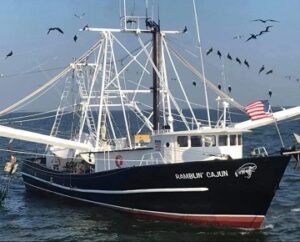
Louisiana Shrimping Industry Faces Uncertain Future in 2023
Shrimpers now face some of the lowest prices they have ever seen due to massive amounts of shrimp being imported from overseas, according to Larose-based trade group Louisiana Shrimp Association. Acy Cooper Jr, the Louisiana Shrimp Association’s president, says the math around shrimp imports are simply not in the Louisiana shrimp industry’s favor. With Louisiana able to meet roughly 25% of the overall U.S. shrimp market demand – shrimp importers from countries like Thailand, Vietnam and Indonesia have brought to market more shrimp than the United States will typically consume each year, driving the price on the open market for Louisiana shrimp lower and lower. >click to read< 13:53

Fishermen fight back on imported shrimp
A big part of Louisiana is the shrimp industry, but the Louisiana Shrimp Taskforce worries they will not survive due to the overwhelming amount of imports. “We are Louisiana, I don’t care how you look at it. When you talk about Louisiana, there’s only a couple of things you talk about, and fishing is one of them. You don’t want to come to Louisiana and eat Indonesia shrimp, you want to eat Louisiana shrimp,” says Acy Cooper chairman of the Louisiana Shrimp Taskforce. Cooper says they have gotten the numbers, showing the United States imported billons of shrimp from foreign countries like Indonesia, Peru, Thailand and Vietnam. Video, >click to read< 11:44

US Shrimpers struggling to find buyers
Lafitte Frozen Foods in Violet can process up to 120 thousand pounds of shrimp per day. Friday was the plant’s last day of operation, at least for now. “This is the first time we’ve ever had to actually say hold it, we’ve got to take a break,” company VP Bobby “Capt. Bob” Samanie said. “We have so much problem with foreign shrimp coming in, it’s killing us.” Local shrimpers like Ricky Robin say when factories start to shut down – the ripple effect is crushing. “When they hurt the factories, they hurt the commercial fishermen that sells to the factories,” Video, >click to read< 10:25
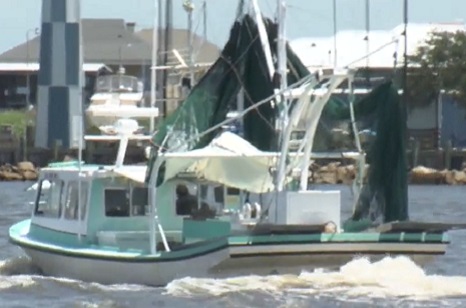
Vermilion Bay shrimper says local shrimp industry is struggling, calls on lawmakers for solutions
“I’ve been commercially fishing since 1974, so it’s been a little over forty years I’ve been doing this,” said Thomas Olander. “I am a third generation, my father did it, my grandfather did it,” he said. “Hurricanes have been a big issue for us. The BP oil spill was a real big issue for us here.” “In 2022, we’re down to 4,000 commercial fishermen.” “We’re being overregulated, we’re paying way too much for fuel, and we’re getting the absolute worst price of my whole career doing this,” he added. According to Olander, the cause is imported shrimp, as imported shrimp floods the market and domestic shrimpers are getting a smaller share and getting squeezed out. Video, >click to read< 17:03
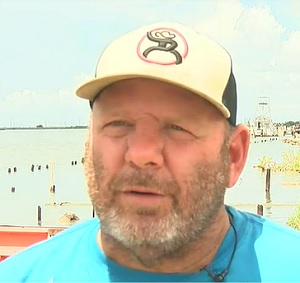
Louisiana shrimpers struggle to make ends meet after prices plummet
“We’re just steady shrimping for nothing,” Cameron Parish shrimper Anthony Theriot said. Theriot says the return on investment is making him reconsider leaving the dock each day. “It’s about $450 a day, with the price of fuel right now that’s 100 gallons of fuel with a little bit of snacks to eat, you go out, you catch 1,000 pounds of shrimp, 1,000 pounds of 50/60′s right now, you’re looking at $650 at 65 cents a pound, at $650, it costs $450 to go catch them, you have crew members looking at you wanting to make money so by the time you divide it all up, you have nothing there,” he said. Video, >click to read< 09:37
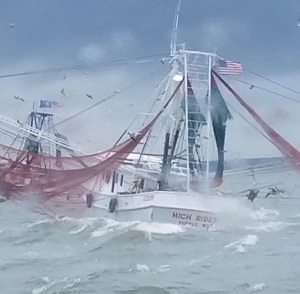
North Carolina shrimpers, fishermen concerned about mislabeled seafood
While brown shrimp, the most abundant of North Carolina’s shrimp landings, are typically harvested in the summer, now is the time for the whites, or green tails. “They are sweeter,” said Corey Galloway, with High Rider. “And when the water cools they are even better.” For Galloway, fall and winter weather improves a lot of local seafood. Breece Gahl of Fresh2U Seafood in Wrightsville Beach, for example, is looking forward to the wild oyster season, which begins Oct. 15. Until the pandemic, he often supplied seafood to restaurants. Earlier this year, Gahl switched to a “shore to door” delivery service and has been a regular at local farmers markets,, Pandemic related concerns aren’t at the forefront for this industry, though. Local shrimpers and fishermen are instead still being challenged by ongoing issues. >click to read< 07:35
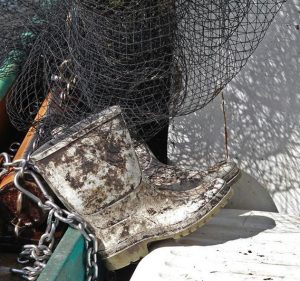
Video – New tax proposed on imported seafood in Louisiana
A proposal is making a splash in Louisiana shrimp boats. Delcambre shrimper Terral Melancon tells me he’s losing money to imported shrimp. “I catch that shrimp, I can’t even get 80 cents (a pound),” said Melancon. “They flood the market so cheap our shrimp is worth nothing because this country is so flooded with the imported shrimp” Now Lousiana’s Lieutenant Governor wants to tax imported seafood at 10 cents per pound, but foreign seafood isn’t just cutting into fishermen’s profits. Video, >click to read< 16:14
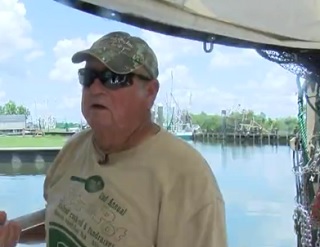
Low shrimp prices are hurting local fisherman who blame imports
Local shrimpers are seeing some of the lowest shrimp prices in history, and most blame imported shrimp. Jimmie Dupré has been shrimping for 61 years. He says he plans to retire soon because the industry is taking a turn for the worst. He says, “We can’t get good prices and they drop every time they have an open season, they drop the prices. They claim it’s on the imports. Now, who imports the shrimp? The processors import the shrimp. And they keep saying well it imports if it’s the import shrimp stop importing the damn thing.” There’s been talk of shrimpers going on strike if prices don’t increase but Dupré says that won’t fix the problem. >click to read<09:35
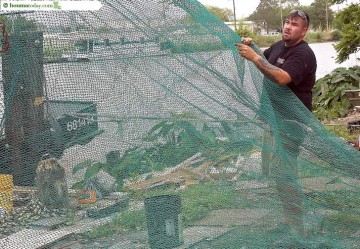
Help sought from a higher authority to help shrimping crisis
Local shrimp fishermen and dealers say the industry’s prices are locally hitting some of the lowest points in nearly a decade, and warning of a market collapse if some kind of help is not forthcoming. What kind of help will do the most good has not been settled, but the industry’ voices will speak 4 p.m. Friday at the Lennox Hotard American Post at 602 Legion Drive in Houma. Among confirmed attendees is U.S. Sen. John Kennedy R-La. “I hope he can sit with us before the meeting so that we can explain what is going on with us,” said Louisiana Shrimp Association President Acey Cooper. Angela Portier of Chauvin,,, “We want to know if there Is anything he can do to help, is there anything he can do to help raise our shrimp prices,” she said. “We need a direct line to President Trump >click to read<09:39
Brownsville Tx. – Shrimpers struggling to compete with imported shrimp
 A slow start to the shrimping season has local shrimpers struggling to compete with imported farm-raised shrimp. Shrimpers are eager to return to local waters after being off for two months. “We have two boats and we’re probably one of the few people that actually jumped into this business without having a family history being in the business,” Texas Shrimp Association Executive Director Andrea Hance said. She’s been in the shrimping business since 2007. She said this season is slow, especially when it comes to their prized catch. “We have a niche market in terms of the large jumbo shrimp. We’re just not catching enough of them right now,” Hance said. She said they’re seeing a lot more small shrimp out in the Gulf which is unusual. A five-pound bag of locally-caught shrimp will cost someone about $30. Imported farm-raised shrimp will sell a similar bag for around $24. Video, Read the rest here 07:23
A slow start to the shrimping season has local shrimpers struggling to compete with imported farm-raised shrimp. Shrimpers are eager to return to local waters after being off for two months. “We have two boats and we’re probably one of the few people that actually jumped into this business without having a family history being in the business,” Texas Shrimp Association Executive Director Andrea Hance said. She’s been in the shrimping business since 2007. She said this season is slow, especially when it comes to their prized catch. “We have a niche market in terms of the large jumbo shrimp. We’re just not catching enough of them right now,” Hance said. She said they’re seeing a lot more small shrimp out in the Gulf which is unusual. A five-pound bag of locally-caught shrimp will cost someone about $30. Imported farm-raised shrimp will sell a similar bag for around $24. Video, Read the rest here 07:23
Louisiana Shrimpers – Big hauls, little profits caused by imported shrimp
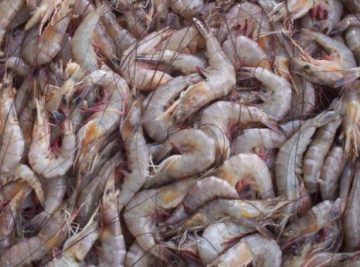 When Lance Nacio recently walked into a Fresh Market grocery store, he made a beeline for the seafood as he always does. He found that only one type of shrimp was local out of the nine varieties. Nacio started work as a commercial fisherman in 1997. Changes in the industry affect his livelihood so the fact that 93 percent of shrimp is imported or farmed hurts his business. Nacio is one of 5,500 licensed shrimpers in Louisiana alone, according to the Louisiana Department of Wildlife and Fisheries. The first shrimping season of the year opened Monday and local fishermen said their early hauls are full of large white shrimp and average brown shrimp, but the imported shrimp hurts the prices regardless of the local quality. “Import shrimp is a lot of what drives global price,” said Nacio, who was recently featured on a Dr. Oz segment about imported shrimp. “We’re not considered a specialty anymore. We’re more of a commodity.” Read the story here 17:08
When Lance Nacio recently walked into a Fresh Market grocery store, he made a beeline for the seafood as he always does. He found that only one type of shrimp was local out of the nine varieties. Nacio started work as a commercial fisherman in 1997. Changes in the industry affect his livelihood so the fact that 93 percent of shrimp is imported or farmed hurts his business. Nacio is one of 5,500 licensed shrimpers in Louisiana alone, according to the Louisiana Department of Wildlife and Fisheries. The first shrimping season of the year opened Monday and local fishermen said their early hauls are full of large white shrimp and average brown shrimp, but the imported shrimp hurts the prices regardless of the local quality. “Import shrimp is a lot of what drives global price,” said Nacio, who was recently featured on a Dr. Oz segment about imported shrimp. “We’re not considered a specialty anymore. We’re more of a commodity.” Read the story here 17:08
Lafitte shrimpers say they are finding it harder than ever to continue their trade
 Fourth-generation shrimper Larry Alexie recently beat Hodgkin’s lymphoma, and is now fighting to remain in the business he’s been in his entire life. Alexie, whose boat is named the Billie Jo after the daughter he lost to a car accident in 1999, is determined to overcome this most recent adversity as well. Today, Alexie is forced to retail his own shrimp, something the shrimpers refer to as peddling, in order to make a profit. For most of the season, prices at the dock hovered around $1.25 to $1.40 for 16/20 count shrimp. “That’s not enough to cover my expenses. Read the rest here 17:39
Fourth-generation shrimper Larry Alexie recently beat Hodgkin’s lymphoma, and is now fighting to remain in the business he’s been in his entire life. Alexie, whose boat is named the Billie Jo after the daughter he lost to a car accident in 1999, is determined to overcome this most recent adversity as well. Today, Alexie is forced to retail his own shrimp, something the shrimpers refer to as peddling, in order to make a profit. For most of the season, prices at the dock hovered around $1.25 to $1.40 for 16/20 count shrimp. “That’s not enough to cover my expenses. Read the rest here 17:39
Louisiana shrimping: Lower prices this year and rise in imported shrimp
 Louisiana State University researchers say Louisiana shrimpers face lower prices this year with an expected rise in imported shrimp. The Daily World reports that imports last year were hit by a virus called Early Mortality Syndrome, or EMS. But this year imports are re-entering the market and that is expected to drive prices down. Julie Anderson-Lively, assistant professor at Louisiana State University’s AgCenter, said a lot of imports were killed off last year and never entered the market. Read the rest here 13:00
Louisiana State University researchers say Louisiana shrimpers face lower prices this year with an expected rise in imported shrimp. The Daily World reports that imports last year were hit by a virus called Early Mortality Syndrome, or EMS. But this year imports are re-entering the market and that is expected to drive prices down. Julie Anderson-Lively, assistant professor at Louisiana State University’s AgCenter, said a lot of imports were killed off last year and never entered the market. Read the rest here 13:00
Shrimpers are angry over the rejection of tariffs on imported shrimp
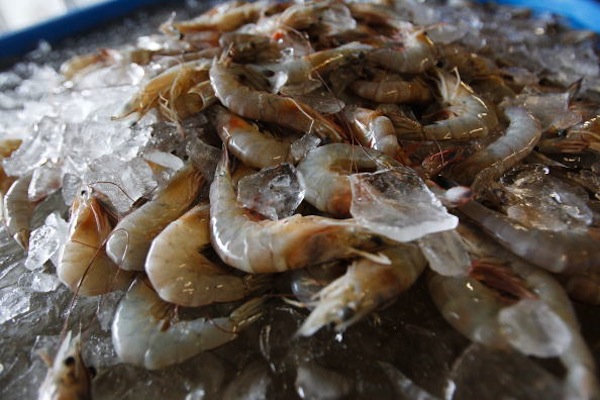 New Orleans, La. – Local shrimpers are angry over the rejection of tariffs on imported shrimp, which they say are hurting their industry. They say those imports, from places like China and Vietnam, often get subsidies as high as 50 percent making it tough for many to compete. more@fox8live 20:10
New Orleans, La. – Local shrimpers are angry over the rejection of tariffs on imported shrimp, which they say are hurting their industry. They say those imports, from places like China and Vietnam, often get subsidies as high as 50 percent making it tough for many to compete. more@fox8live 20:10







































